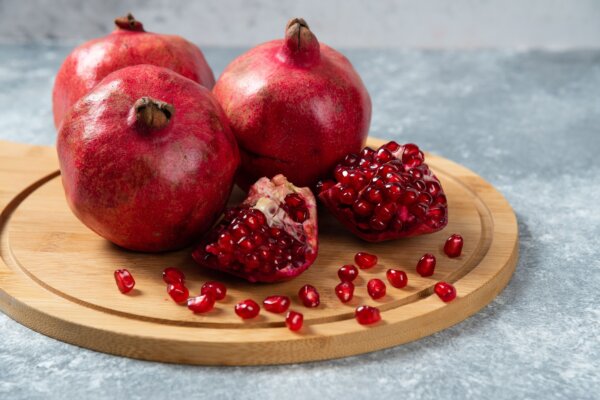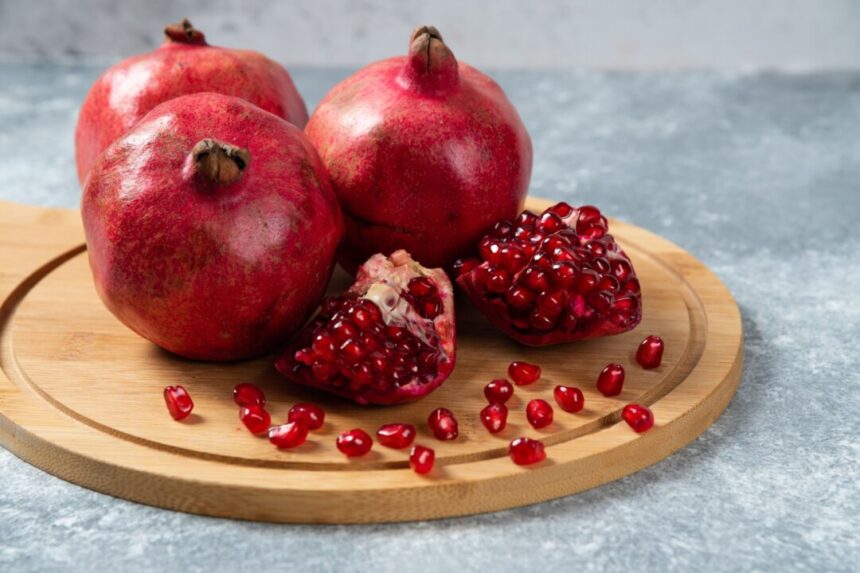
Pomegranates are a delightful seasonal fruit filled with juicy ruby-red seeds that are not only fun to eat but also offer numerous health benefits, according to various studies.
Study: Modest Improvements in Blood Sugar
Although pomegranates may not be the first food that comes to mind for managing diabetes, recent findings suggest that they can make a positive impact on blood sugar levels. Research published in Diabetes & Metabolic Syndrome: Clinical Research & Reviews indicates that consuming pomegranates can lead to modest but statistically significant improvements in key measures of blood sugar health.
After examining nearly 2,000 studies and focusing on 32 high-quality trials, researchers found that incorporating pomegranates into the diet resulted in a drop of about 2 milligrams per deciliter in fasting blood sugar levels. This suggests that pomegranates can help manage daily blood sugar levels effectively.
The pooled results also showed a slight decrease in insulin levels and an improvement in hemoglobin A1C, a marker of long-term blood sugar control, by 0.22 percent. Additionally, the homeostatic model assessment for insulin resistance was reduced by 0.30 points.
Prior Research on Pomegranates and Diabetes
Several studies have explored the effects of pomegranates on diabetes. A 2013 review focused on the impact of different parts of the pomegranate—peels, flowers, and seeds—on key diabetes indicators, highlighting insights from both lab tests and clinical trials.
According to the study, one of the key mechanisms by which pomegranate fractions affect type 2 diabetes is by reducing oxidative stress and lipid peroxidation. Active components like punicic acid and extracts from seeds and peels have been shown to significantly lower fasting blood glucose levels.
Why Pomegranates Are Unique
Pomegranates are rich in nutrients and high in antioxidants, such as polyphenols, which are essential for managing blood sugar levels. Researchers suggest that these compounds can reduce inflammation and improve insulin efficacy, thereby reducing insulin resistance, a major factor in Type 2 diabetes. Studies have shown that pomegranate juice can slow down the absorption of sugar in the blood and reduce post-meal sugar spikes.
Moreover, pomegranates contain dietary nitrates and punicalagin, which help improve blood flow and soften arteries, essential for effective diabetes management.
Comparing Pomegranates to Other Fruits
While pomegranates offer numerous benefits, it’s essential to compare them to other fruits commonly recommended for managing diabetes, such as blueberries and apples. All three fruits are rich in fiber and antioxidants, which can enhance insulin sensitivity and reduce the risk of diabetes.
The unique advantage of pomegranates lies in their higher concentration of specific antioxidants like punicalagin, which provide potent anti-inflammatory and anti-glycemic effects. This unique composition makes pomegranates particularly effective in combating oxidative stress and inflammation associated with diabetes.
Simple Ways to Incorporate Pomegranates into Your Diet
Adding pomegranates to your diet can be simple and beneficial. Here are some ideas for using different parts of the fruit:
- Pomegranate seeds: Also known as arils, these seeds are rich in fiber, vitamins, and minerals. Sprinkle them over salads, mix them into yogurt or oatmeal, or enjoy them as a healthy snack.
- Pomegranate juice: Rich in antioxidants, drinking pomegranate juice can help reduce oxidative stress and inflammation, promoting heart health and lowering blood pressure. Enjoy it chilled or use it in vinaigrettes and marinades.
- Pomegranate skin: While not typically eaten fresh due to its bitterness, the skin contains more antioxidants than the arils and juice. You can dry and powder it for use in smoothies or as a seasoning to enhance nutritional content.
- Cooking and baking: The tangy flavor of pomegranate seeds makes them a great addition to both savory dishes like couscous and roasted vegetables, and sweet dishes like fruit tarts and desserts.
- Pomegranate extract: Available as a supplement, pomegranate extract offers a concentrated way to enjoy the health benefits, especially when fresh fruit is not in season. It can be added to drinks for a nutritional boost.





